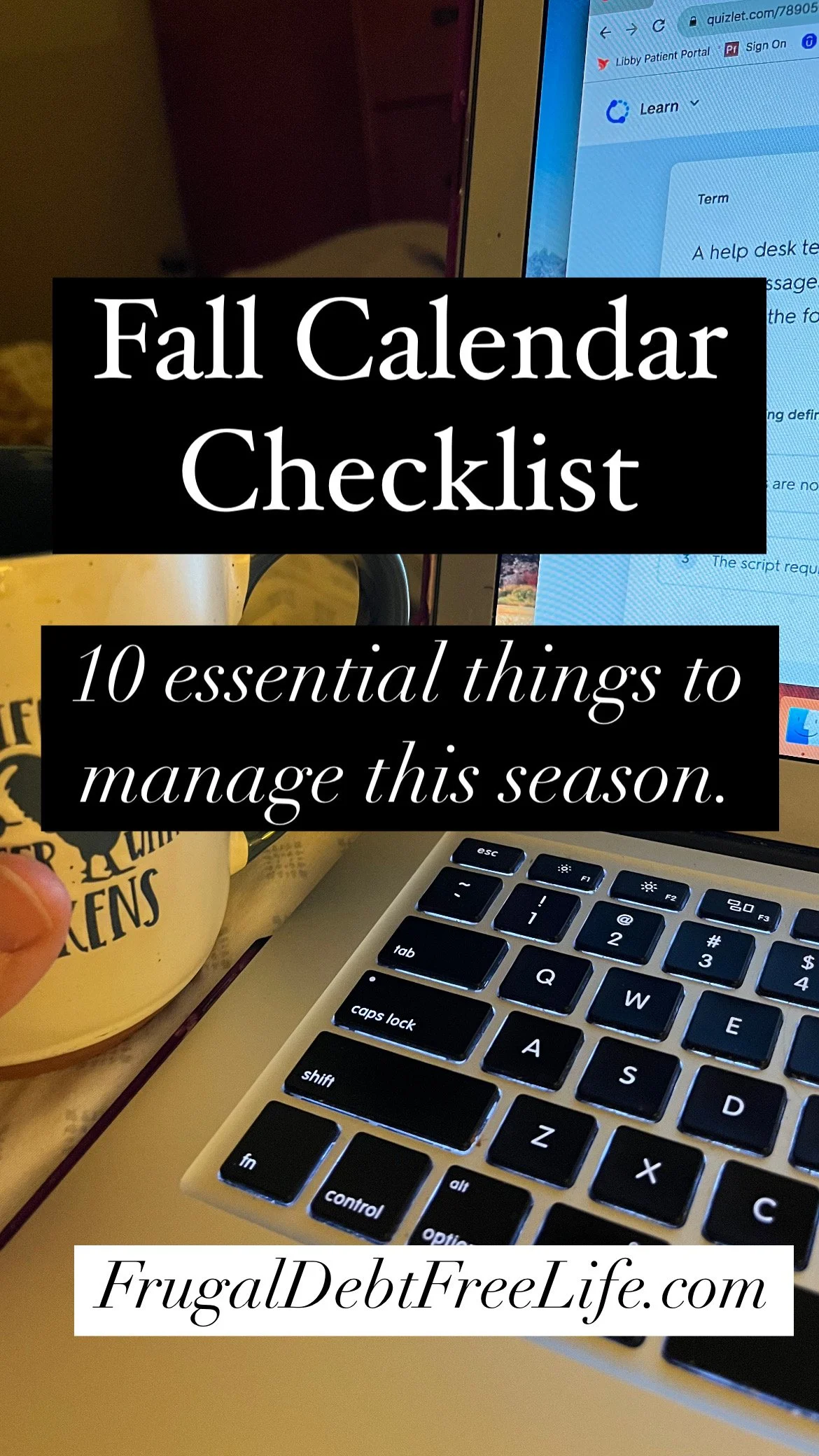My biggest money and marriage regret: Merging Finances for Newlyweds
/Today I'm talking about my biggest regret when it comes to marriage and money.
For those of you who don't know, my husband Jason and I have been married for twelve years. And we did not combine our finances for the first five years of our marriage. I think that that led to a lot of the money problems that we ended up having — because we did not have accountability.
He had his checking account. I had my checking account. We thought we had a pretty good system. He would pay the mortgage out of his account and I would pay all the bills out of mine. We thought this was fine; this was just a great way to keep things afloat and to keep things going. You have your money and I have my money and we're good.
Some people can handle life that way. But we couldn't. There was a lack of accountability. There was a lack of structure. We weren't communicating. And, really, I feel like our marriage was missing something as a result.
If you don't know our story, Jason graduated from college with a pretty fair amount of student loan debt. And then we racked up some credit card debt during the recession. Things very quickly got out of hand. And I feel like if we had been on the same page, if we had combined our finances, if the right hand knew what the left hand was doing, then we would not have had so many money struggles.
The thing is: Jason and I did not fight about money. Ever. I think, in the entire twelve years we've been married, we've had one fight about money and that was after we got out of debt.
We didn't fight about money. We did something much, much worse: We never talked about it.
We pretended that our money problems didn't exist and we just didn't face them. We didn't talk about them. We thought about them, but it's not something that we discussed together.
I had an extreme amount of anxiety related to our money struggles and I can't help but think how much better things would have been, how those anxieties would have been eased had we just communicated about them.
So, when Jason and I had been married for about five years, we decided to finally combine our finances. That was the year before we really started trying to get out of debt.
I feel like this is a cautionary tale to you to actually take the time to combine your finances but to have regular discussions about them.
I know that, oftentimes, those discussions can quickly devolve into a fight because you've got two human beings living in one household — imperfect people trying to create a perfect situation that's never going to exist. Instead, you need to have an immense amount of grace and understanding with each other. You are not your spouse's parent. You are your spouse's partner. You are in this together. It is not one of you dictating to the other what needs to happen. This is when communication goes off the rails. This is when fights happen. So learn to talk about it.
A question I get a lot is: “But my husband won't listen and he won't budget with me and he won't sit down.” I don't know how to address that situation because I've never walked through that myself. I know His and Her Money has a ton of great advice and I will link to them below.
But I feel that that might be indicative of an entirely separate situation. I am not a money expert and I am not a marriage counselor. But if it's gotten to the point where one of you just completely will not listen to the other one, walks away, will not even have a discussion about it, that might be a sign that your problems are bigger than just a budgeting issue. And that's a really hard thing to have to think about and consider.
I think, sometimes, let's just be real, some of us have a bigger, stronger personality and we want to push our way into a situation and get our way and not really listen. That is a recipe for disaster. Your partner is an equal in this situation, so you have to take the time to listen and hear what they have to say. It's not a my way or the highway situation. It's a partnership working in tandem together to create the best life possible for ourselves and to reach our goals.
And you have to have some common goals. Which is kind of my next tip and that is to daydream together. To sit down and figure out where you want to be in five years. Do you want to have your house paid off? Fantastic. Do you want to go on a really great vacation? Fantastic. Do you want to have children? Wonderful. But sit down and talk about those things together.
We're on the right track when we thought, "Okay, the mortgage will come out of your paycheck", "The bills will come out of my paycheck." So figure out who gets paid when and what bills are going to come out of that check. Jason and I both get paid weekly, well, he gets paid weekly and then I get paid weekly on some jobs and monthly on others and quarterly on others. When you freelance, it's just like a patchwork quilt of whenever you're going to get paid. So we have a little bit of a trickier situation sometimes figuring out what bills are going to be paid when. But it's always a good idea to sit down and determine the who, what, when, where and how of that.
I hope I've given you some food for thought in my cautionary money tale. Just sit down and have those hard discussions even if they turn into fights. Have those hard discussions. Listen to one another. And, at the end of the day, realize people over money, people first. Okay. Money is going to come and go. But you only have one of that other person. You know, I'm never going to get another Jason, so getting my way on what color roof I want or whatever stupid thing I'm going to fight about is not as important as that person's feelings. That's something that I have to remind myself of all the time.

























